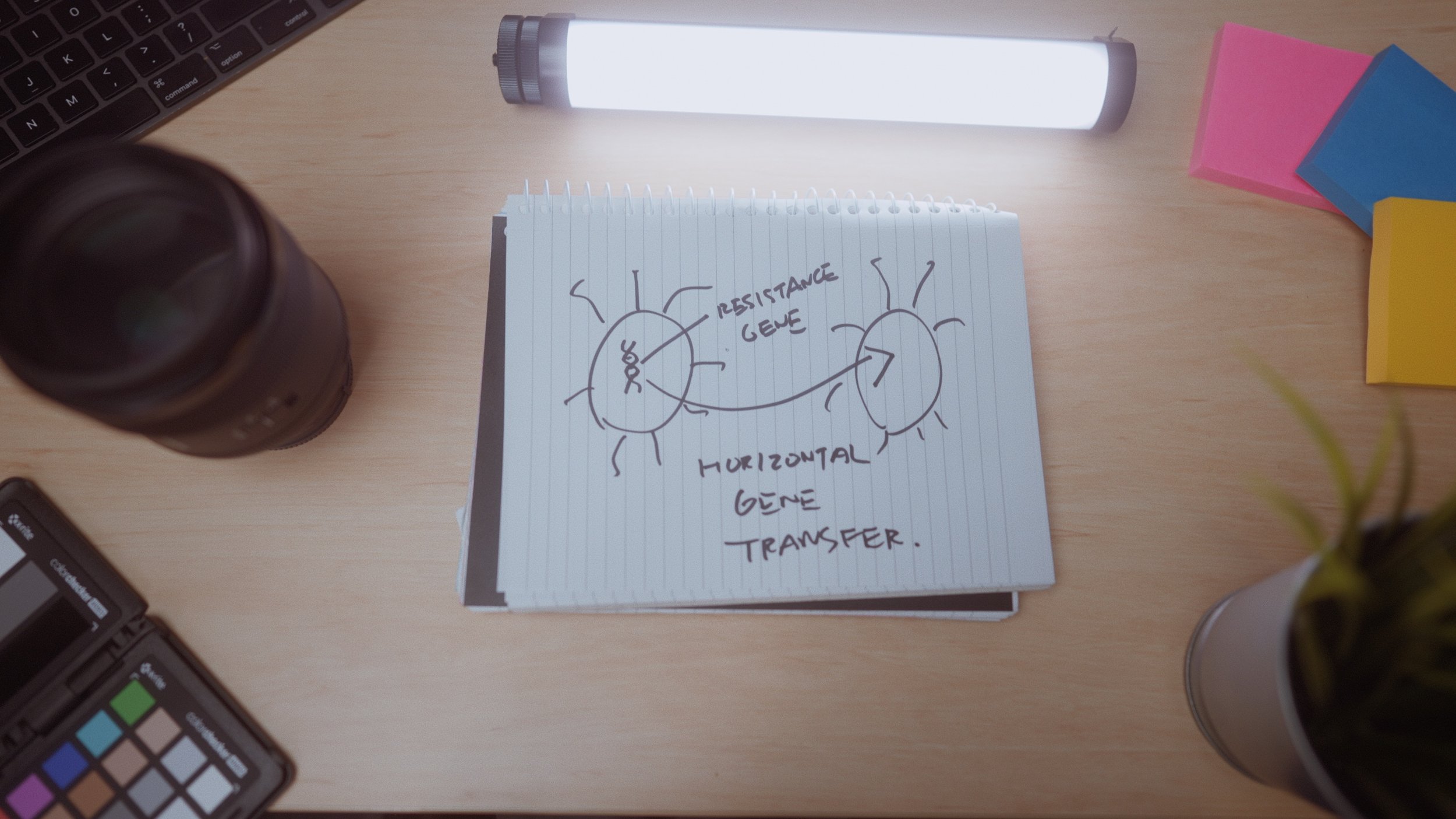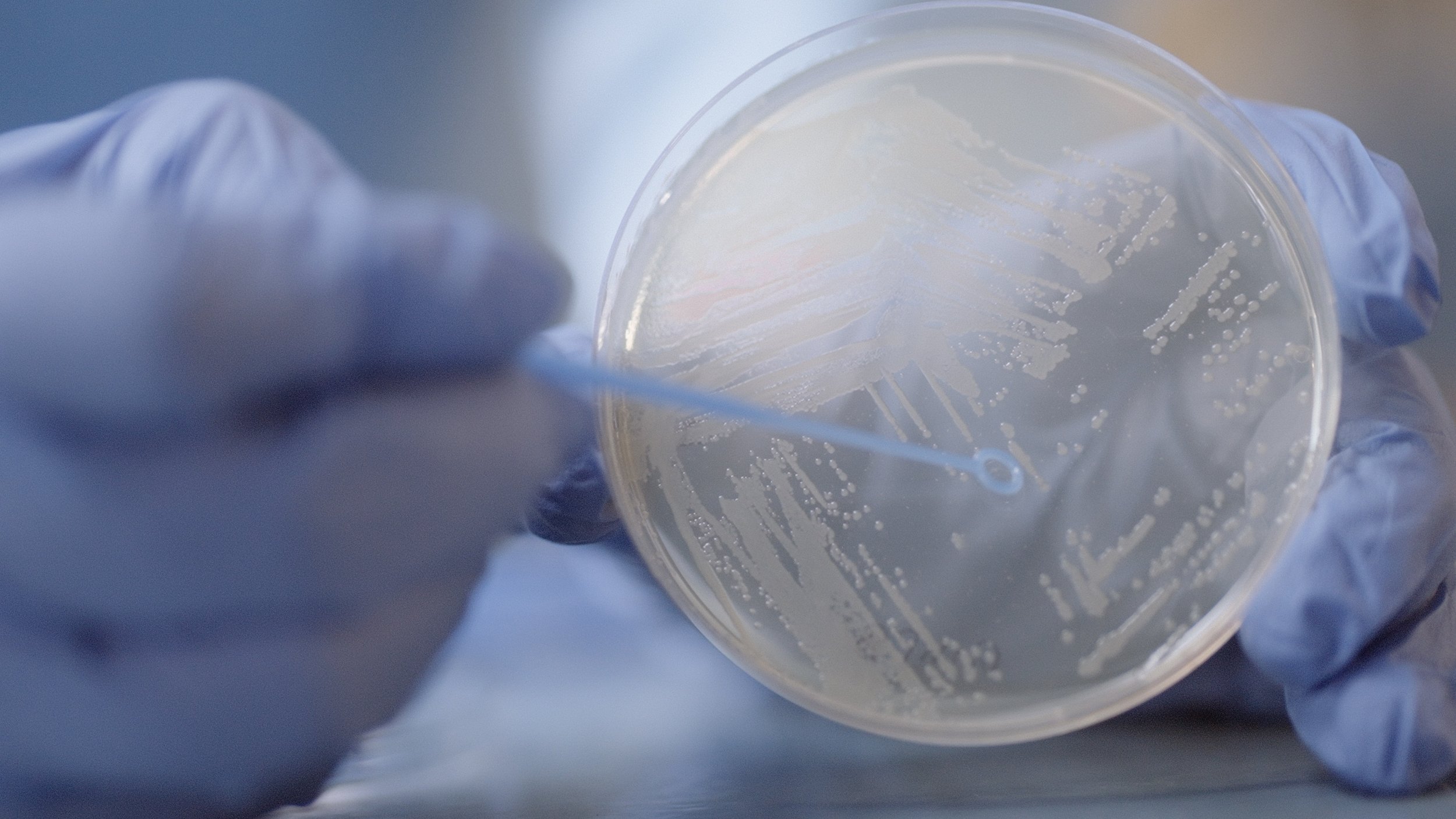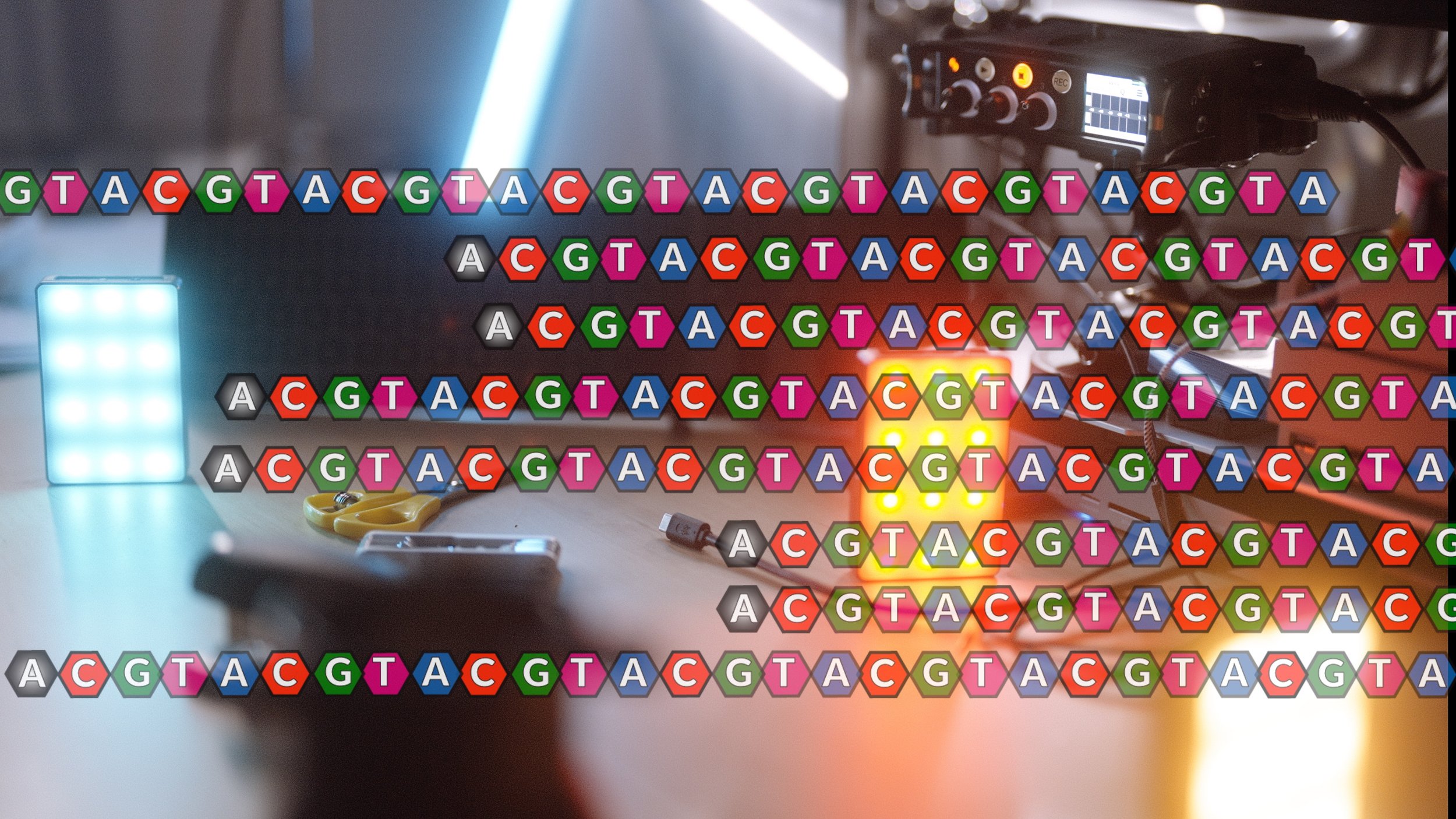

The Point
1 December 2022
What’s the point of going to class? Maybe you turned up to all your classes in person. Or maybe you skipped all your classes and only watched the lecture recordings as videos at home late at night. Whatever you tried, did it work out? Did you feel prepared heading into your final exam? Was it a good use of your time?
The main “point” of turning up to class is not anything to do with the class itself. It’s about the ancillary indirect benefits of showing up on the day again and again over time - establishing good habits, time management skills, forming connections with your peers and teachers, and developing soft skills that are crucial to find a job. If attending classes “live” is not an realistic option, you’ll need to find other ways to enrich your learning experience.

Your People
29 November 2022
The transformation from “consumer of information” to “creator of knowledge” is a rare and unlikely process.
Research training, especially for students who have never had any prior research experience, is a particularly jarring learning process. This is Part 3 in this blog series on different strategies to develop some skills and “early wins” in research training. Part 1 discussed the idea of information overload, literature searches, and data management, and Part 2 talked about the concept of research design. Today let’s talk about the ever elusive topic of research supervision and mentorship. Exactly what should you expect from your supervisor, and what should they expect from you?

The Simple Truth
29 November 2022
As an undergraduate university student, I had a great GPA, really liked the area I was studying, and was willing to put in the work. On paper I should have hit the ground running when I started my research career. But in all honesty I was a terrible researcher when I first started, because it took me years to realise this simple truth:
The transformation from “consumer of information” to “creator of knowledge” is a rare and unlikely process.
While I was a quick study and motivated by intellectual curiosity, I didn’t have the skills to tackle my research project in a logical and systematic way. This is Part 2 in this blog series on different strategies to develop skills in research training

Overload
25 November 2022
This entry is an entirely selfish undertaking - the truth is I’m running out of time.
Or more accurately I was running out of time? Last week I was invited to give the opening Keynote for our Summer Research scholars, and the slides were due at the same time as everything else - committee meetings, exam marking, manuscript revisions, curriculum reviews… The pressure as a Keynote speaker is to be engaging, motivational, if not inspiring (cue the world’s smallest violin), but I’m not sure if I have many (if any) magic tricks left up my sleeves this year.
So…. this was my attempt at a productivity life-hack - to write my talk by narration, filming my stream of consciousness brain-storming (brain-dumping?), and using the footage to reverse-engineer some semblance of a presentation. I committed to publishing this footage as a YouTube video too, which raises the stakes! It turns out nothing makes you focus more than the risk of embarrassment on two fronts - both online and in-person if the talk wasn’t any good - so sadly this may be my new way of ensuring personal accountability in the face of looming deadlines. To triple-down on this notion, here’s the essence of my talk in blog form as well: 5 ways to develop your research skills.

Retrograde III: A Way Forward
4 November 2022
If you're part of the teaching community, you know just as well as I do that we're very tired of talking and thinking about the pandemic, and all of the implications that it’s had on students. We’re all tired of learning new buttons to press, new systems to navigate, all with very little notice, and fatigue and burnout is just as much of our day-to-day as the excitement of connecting with students. How should teachers think about professional development in this climate, and find more meaningful, sustainable ways to improve our effectiveness in both online and in-person classrooms?

The Divide
26 October 2022
How do five different generations view university teaching and learning?
Teachers often argue that they learn most when they teach something to others. This seemed to go with the maxim that as a teacher you needed to be ahead, but only just ahead by an hour or so, of your students in having learnt a subject. But are our students catching up, or has their capability and expectation overtaken us?

Retrograde II: Hidden Costs
21 October 2022
Not too long ago, Massive Open Online Courses (MOOCs) were a novel jewel in the crown of Higher Education, making headlines as Big Education and Big Tech converged in productive synergy. Students from all across the world can access education from Ivy-league institutions, and the transformative potential it had on global education was palpable. Fast forward a few years, and all of a sudden MOOCs were making headlines again for all the wrong reasons. The risks of >90% student drop out rate and ongoing workload implications for teachers made many institutions hesitate, and the value proposition of developing new free MOOCs became muddier and muddier.
How did the sector arrive at this point, and should we continue to design new online courses accessible to the masses? My answer is a resounding yes, but perhaps not for the reason you think. Let’s look backwards before we can look forwards and see what’s next.

Retrograde (Part 1)
16 October 2022
Those who cannot remember the past are doomed to repeat it but is what’s new always best? We learn by reflecting on old mistakes, but re-tracing our steps also reveals hard-won wisdom from previous generations. If you’ve been a student or worked as a teacher any time in the last 2-3 years, you will be all too aware of how chaotic education has become. It’s precisely during these moments of instability though that we should look backwards to see how it will inform the future and what happens next. My work is very much student-centred, but the next few posts are all about teachers. How all of us have adapted for different teaching approaches and delivery modes, and what we can learn from each of the 7 phases of university teaching over the past two decades.

The Trap
7 October 2022
When are you going to find a job?
Does your University experience actually prepare you for a job?
Most students are already working part-time jobs in areas that don’t require formal qualifications, and the realities of the gig economy may seem at odds with the typical routine of lectures, assignments, and exams... If you’re working in jobs that are casual, independently contracted, or offered through online businesses, it can be hard to connect the dots between the formal qualifications you’re working so hard to pursue and what pays your bills week to week. Many people (and governments) view Universities as service providers to not only students, but also employers. Unless our degrees are training you for specific jobs currently in demand with employers, everything’s off the table.
Sadly this is the trap we can all too easily fall into - letting short-term goals obfuscate our long-term potential.

What comes next
4 October 2022
Like it or not, we learn the most when our backs are up against the wall, when the pressure is on. When we’re forced to harness all of our training and knowledge in a split reactionary second, to see exactly how much we can say and do under duress.
No one wants to be in high pressure situations all the time but what if that's when we learn the most? Sure, not all of these lessons are pleasant, and constantly being in a state of fight or flight doesn’t bode well for our long-term mental health. Can we be more strategic and selective however, and choose learning experiences that puts us out of our comfort zone in small but measurable ways?

Okay not being OK
22 September 2022
When I was doing my PhD, I was trained to treat live debate with caution and suspicion - only enter the metaphorical arena if you were ready to figuratively fight for your scientific bona fides. It’s no big surprise then that the Socratic method was not my first choice of pedagogy. Why would I deliberately open myself up to questioning if I didn’t have to?
In the last series of posts I have trying to wrangle with what advice would be most valuable to new teachers who are being thrust into an education sector filled with uncertainty. Today I want to talk about the fact that teachers don’t need to know all the answers - that it’s okay to be not OK with every question students might ask you.

Our Value
21 September 2022
New teachers are in an unenviable position, where the entirety of their teaching experience is filled with one-way conversations to virtual rooms of disembodied black screens. The joy of communicating and connecting with students is lost on them, simply because they’ve never experienced it. In spite of this unique (and unfortunate) start to their careers, they’re offered unsolicited advice all the time. I try to take a different approach when mentoring teachers in my network, in an attempt to help them figure out what works best for them. Today let’s dig a little deeper and talk about how to find and express our value in any classroom.

Are you not entertained?
20 September 2022
Being named the Australian University Teacher of the Year in 2020 has allowed me to amplify the resonance of the work I am doing in teaching and learning at a much broader scale. The best part of it all is the chance to connect with other teachers all across the world, and try to collaboratively address the big issues in teaching and learning.
“What tips do you have for new teachers just starting out?”
In an attempt to avoid the overly generic advice new teachers are consistently bombarded with, here’s what I try to tell them first - you don’t have to be entertaining.

How to make a Superbug
9 September 2022
It is always scary when someone in your family is admitted to hospital, even if it’s just a routine procedure. No-one wants to stay longer in hospital than they have to, and healthcare-acquired infections happen all the time. These are infections that immunocompromised patients catch while in hospital, which are increasingly caused by superbugs that cannot be killed by any drugs on the market. Prevention is always better than cure, so how do we prevent superbugs from emerging in the first place? Today we are talking about superbugs - what they are, why they are becoming more common, and how a scientist can create a superbug in the lab to better understand this whole process.

Troubles (Part 1)
19 August 2022
Laboratory training is a rare, expensive, and time-consuming process, especially in research and development or R&D. You’re not just repeating someone else’s perfected standard operating protocol, it is up to you to design all the steps and make sure they are foolproof. In learning it’s not enough to copy the perfect version of events that someone else has mastered, you have to know all of the ways something can go wrong so you can reverse engineer and troubleshoot any situation. Troubleshooting experiments is a complicated topic, and over the next few weeks I am trying to break this down for students across different lab techniques. Today the focus will be on antibiotic sensitivity testing - the experiments that will flag any new superbugs that will cause havoc in the population because none of the available drugs we have can kill them.

Home Alone
28 July 2022
Study hacks, and quick and easy ways to learn are all over the internet. “Why I stopped going to class and so should you” is one of the more clickbaity titles, and it sounds like the dream - learn at home, at your own pace, and spend the extra time getting paid for work experience while you study. I’m travelling right now, and in many ways my job is flexible enough to accomodate this. I can watch short videos, tweet, respond to email queries, and livestream my conference talk remotely, all while travelling. If it works for the teachers, why doesn’t (or shouldn’t) this work for students? The truth is that it does work for some students, but they are the exception, not the norm. Let’s talk about why this is the case, and dive into a few study strategies that may help you study online more efficiently.

Time Off
20 July 2022
What do teachers and professors do in our time off? Well it depends on what we’re taking time off from. It’s currently the week before the teaching semester officially starts, but I’ve been preparing for this unofficially for months. What type of preparation do we need to do before a single student shows up to class? Let’s dig a little deeper - a teacher’s day in the life leading up to the start of semester.

The “Controllables”
15 July 2022
Biology and the molecular biosciences is a discipline of nuance and subtlety - our “breakthrough” discoveries are not dramatic in the moment - a slightly darker colour change, a small band appearing, or a reading that is slightly lower or higher than we expected. This reflects the complexity of organisms and how tightly constructed every part of our biology is. Even a 5-10% shift in gene expression can mean the difference between normal cell growth and cancer. A 5-10% difference might also mean nothing - it could just be the statistical margin of error. The thin line that separates genuine breakthroughs from random background noise only exists if we can control as many experimental conditions as possible.

The Mimic
8 July 2022
It’s your first time in a lab, seeing all the chemicals, liquids, glass beakers, and sharps - all you’re trying to do is not get hurt or break something expensive. You’re somehow supposed to follow a huge list of complicated instructions using equipment you’ve never seen before to do an experiment you’ve never heard of before. Everyone says lab skills are essential for finding jobs, but is it this hard for everyone? Feeling like you don’t know where to start is very common. You need a plan and systematic strategy for learning, especially when it comes to complex professional skillsets like lab techniques. Today let’s assume we’re all novices starting from the beginning, and talk about how to get the most out of lab classes using the mimic or copycat method.

Nature vs Nurture
29 June 2022
Despite my original plans at the start of my training, I am by no means a bioinformatician. I studied degrees for both science and information technology, but I quickly found out that i would be better suited as a bioinformatics end user rather than a developer. All the software engineers in my classes had been coding since they were toddlers, but for me it felt like learning how to ride a unicycle upside down. It’s pretty embarrassing to struggle so much in programming 101 but some people’s brains are just innately better tuned for computer programming, just like others are naturally talented at music or art. It doesn’t mean we should avoid the things we aren’t naturally talented at, in fact there’s a lot to be said for knowing how to learn under non-ideal conditions, and having an interdisciplinary overview of different skillsets. Biologists need a better understanding of bioinformatics, just like software engineers need to know more about biology.